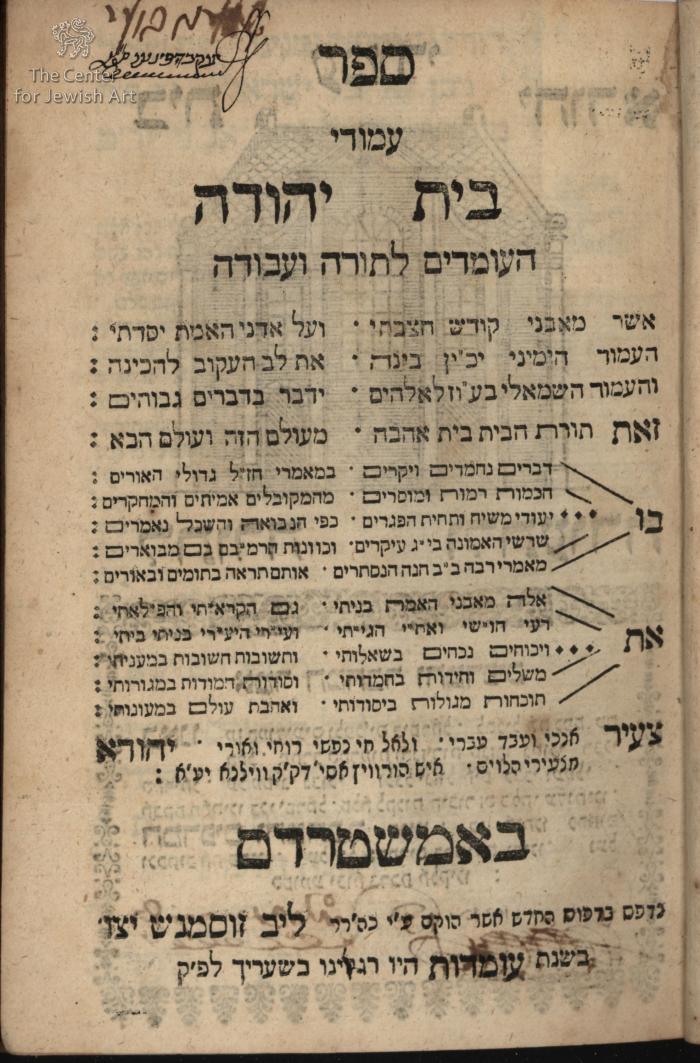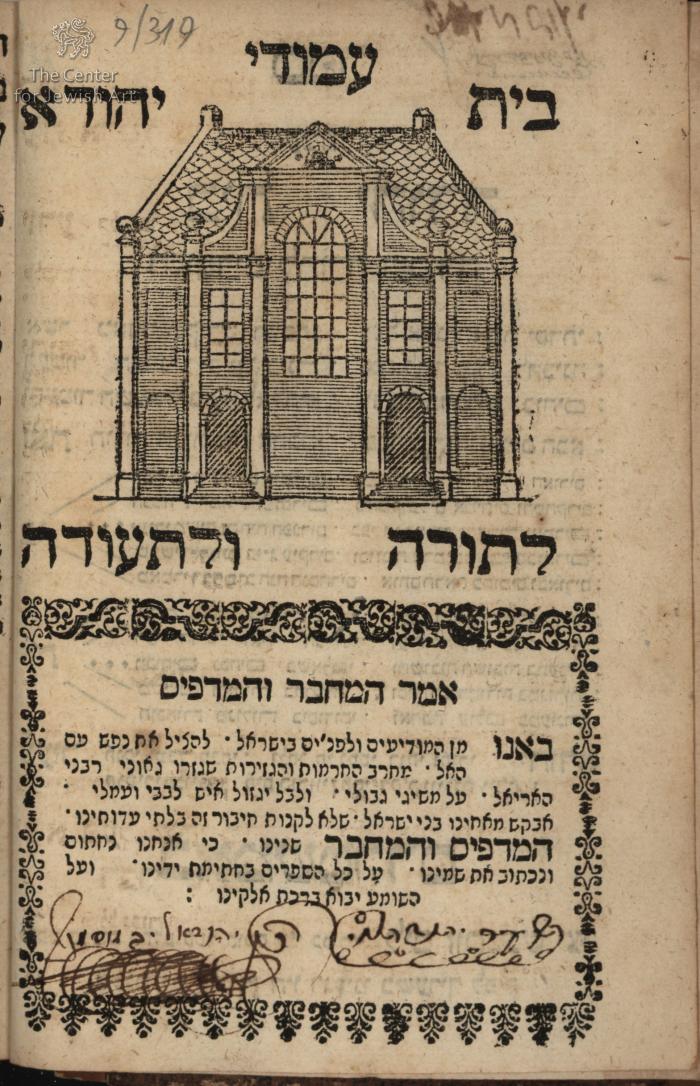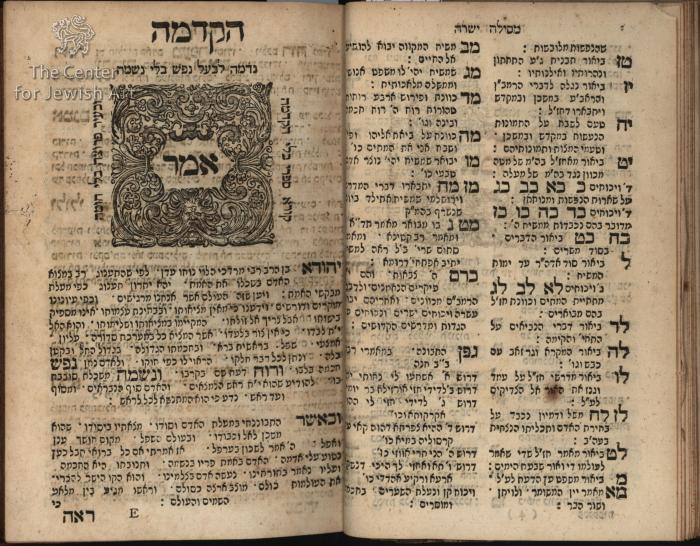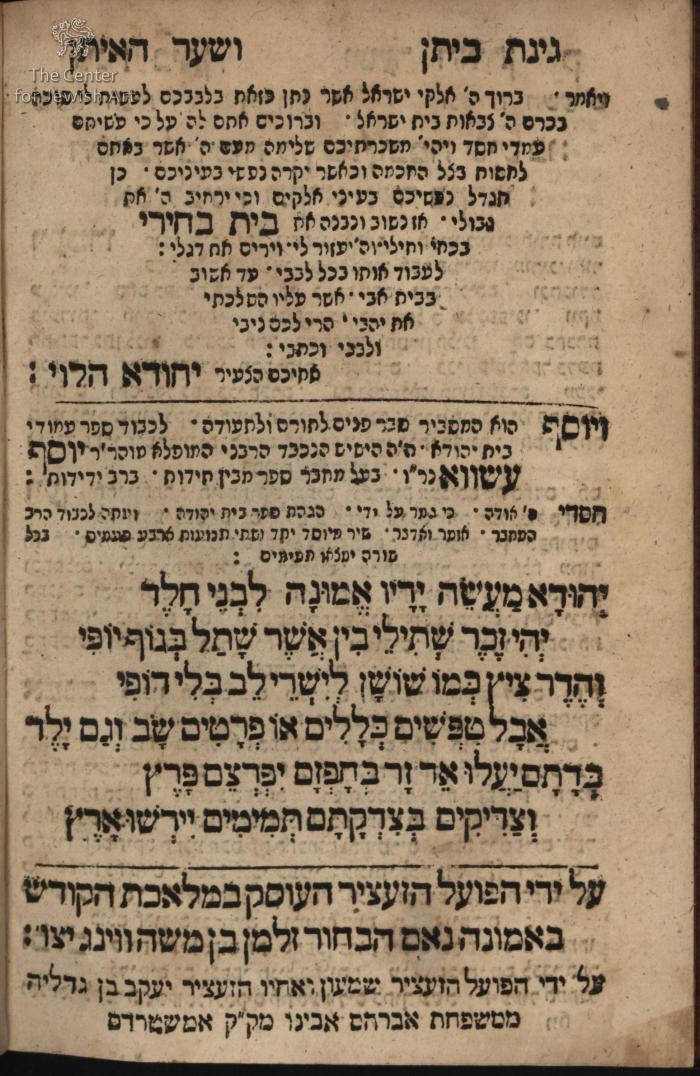Obj. ID: 35505 Amudei Beit Yehudah by Yehudah ben Mordekhai Horowitz, Amsterdam, 1766

sub-set tree:
This text was prepared by William Gross:
Amudei Beit Yehuda, essays on sayings of Chazal and on the basic tenets of faith ["Messiah and resurrection of the dead… the 13 principles of faith… the sayings of Rabba bar bar Chana"], by the Torah scholar Rabbi Yehuda Leib Horwitz of Vilna. Amsterdam, [1766].
On the verso of the title page is an illustration of an edifice with pillars (symbolizing the name of the book) and a frame with the handwritten signature of the printer R. Leib Zusmensh and other signatures. The section that deals with the 13 principles has a special title page. At the beginning of the book are many rabbinical approbations and poems by various Torah scholars and scribes
A tractate calling for reforms in Jewish life, written by Judah ben Mordechai ha-Levi Hurwitz (d. 1797). A physician in Vilna and Grodno, Hurwitz was an important bridge between Haskalah in Germany and its later introduction into Eastern Europe. An acquaintance of Moses Mendelssohn, he wrote several works in Hebrew urging reforms in Jewish life. Amudei Beit Yehudah [Foundations/Pillars of the House of Judah] is the most important of these works, and includes an introduction by Moses Mendelssohn and a poem by Naphtali Herz Wessely.
Includes illustration of a multi-storied pillared house, signatures, and diagrams on pp. 78-79.
[1], A-D, [5], E-G; 100 leaves





